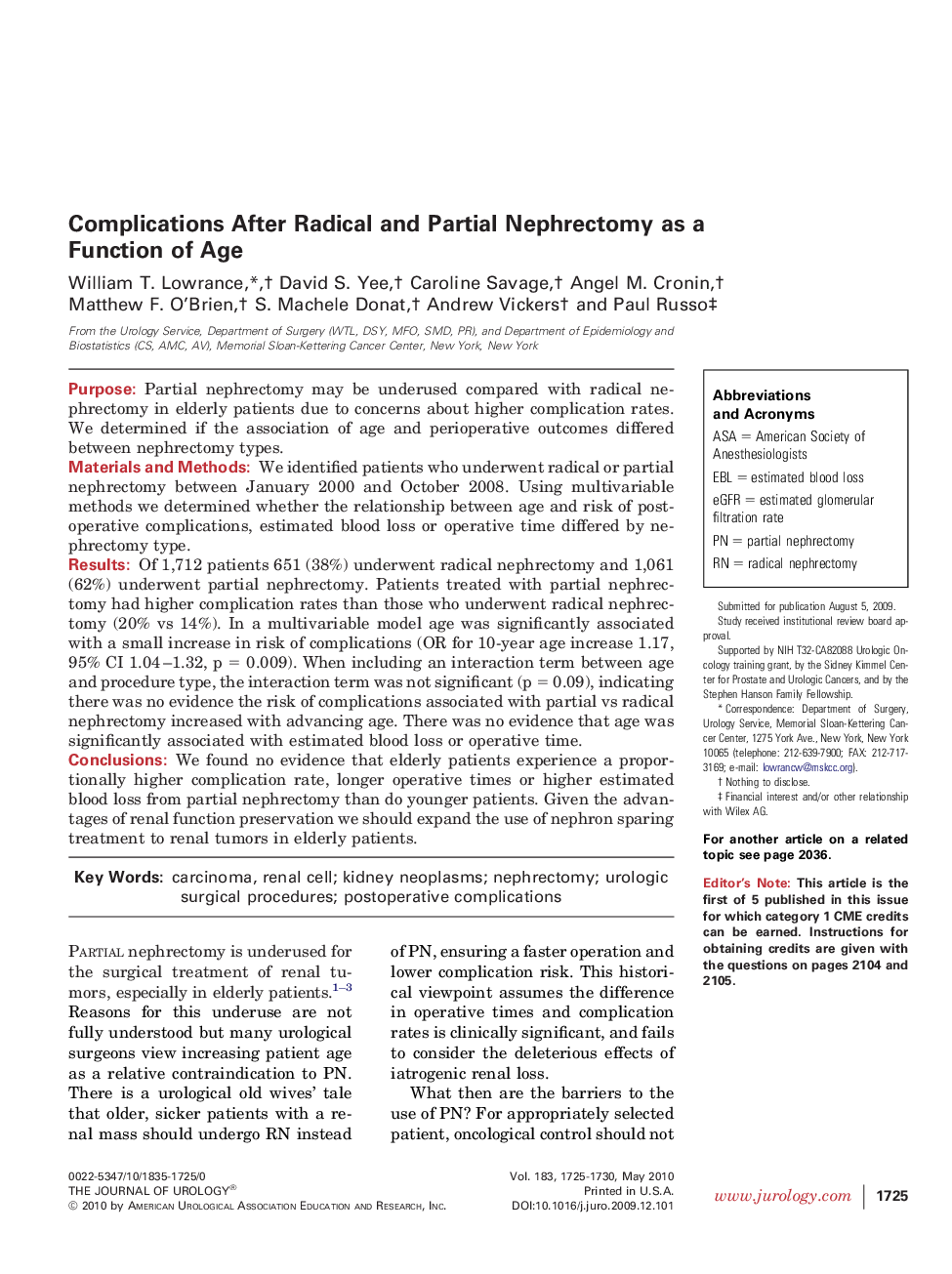| Article ID | Journal | Published Year | Pages | File Type |
|---|---|---|---|---|
| 3866479 | The Journal of Urology | 2010 | 6 Pages |
PurposePartial nephrectomy may be underused compared with radical nephrectomy in elderly patients due to concerns about higher complication rates. We determined if the association of age and perioperative outcomes differed between nephrectomy types.Materials and MethodsWe identified patients who underwent radical or partial nephrectomy between January 2000 and October 2008. Using multivariable methods we determined whether the relationship between age and risk of postoperative complications, estimated blood loss or operative time differed by nephrectomy type.ResultsOf 1,712 patients 651 (38%) underwent radical nephrectomy and 1,061 (62%) underwent partial nephrectomy. Patients treated with partial nephrectomy had higher complication rates than those who underwent radical nephrectomy (20% vs 14%). In a multivariable model age was significantly associated with a small increase in risk of complications (OR for 10-year age increase 1.17, 95% CI 1.04–1.32, p = 0.009). When including an interaction term between age and procedure type, the interaction term was not significant (p = 0.09), indicating there was no evidence the risk of complications associated with partial vs radical nephrectomy increased with advancing age. There was no evidence that age was significantly associated with estimated blood loss or operative time.ConclusionsWe found no evidence that elderly patients experience a proportionally higher complication rate, longer operative times or higher estimated blood loss from partial nephrectomy than do younger patients. Given the advantages of renal function preservation we should expand the use of nephron sparing treatment to renal tumors in elderly patients.
